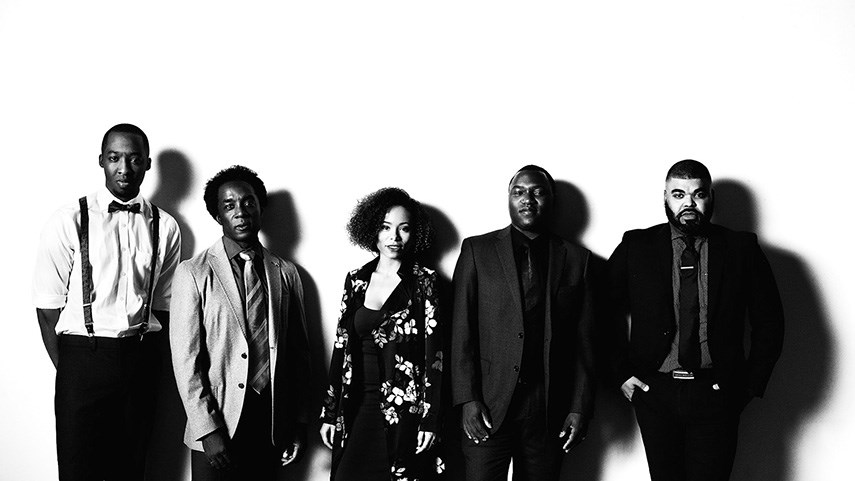The Shipment, A SpeakEasy Theatre Production at Presentation House Theatre, Oct. 8-12, 7:30 p.m. For more information and to reserve tickets visit phtheatre.org or call 604-990-3474.
If it’s an actor’s job to express ideas and portray deep, complex characters, some of Omari Newton’s early roles left him wanting more.
While he’s since taken up a myriad of challenging and rewarding roles, some of his early acting credits, he says with dismay, included bit parts such as “Slave No. 2” or “Thug No. 1.”
“Often times for young black actors and male actors, the types of roles we’re asked to read for aren’t fully realized human beings. They’re just really stereotypical tropes,” explains Omari Newton. “I started in the ’90s and things have gotten notably better since then – but these tropes still exist.”
In The Shipment, wrapping up its run in Vancouver this week before starting a tenancy at Presentation House Theatre in North Vancouver, there’s still a procession of black stereotypes at play – but that’s kind of the point.
The show, a biting satire about race and the way black identity and experience is represented in the media, is chock-full of “ridiculous narratives in dominant media” that read like “a bad B-list of black iconographies,” according to a press release.
In this subversive modern minstrel show spread across various skits and sketches, five black actors will portray characters such as Video Ho, Crackhead John, Bad Cop, Stand-up Comedian, Drug Dealer Mama, Grandma from Heaven, Record Company Executive, and many more, according to Newton.
Newton, who co-directed the show in addition to acting in it, opens the play by taking on the role of Stand-up Comedian.
“There’s a 15-minute stand-up comedy routine that deals with race and a number of other really shocking taboos that are really forced to shock people,” says Newton. “The audience is left laughing and also feeling shame and guilt and questioning, ‘Should I be laughing at these things?’”
While people may be accustomed to passively observing black bodies play drug dealers, thugs and athletes, especially on the television or silver screen, it’s harder to ignore the humanity behind the characters – and question the very nature of these stereotypes’ existence – when they’re presented right in front of you, according to Newton.
“I think it forces you to really question the way we package and passively consume images that are placed before us. It’s easier on television than it is when you’re in a live theatre,” he says.
A seasoned actor who got his first professional gigs on stage at 19 with Black Theatre Workshop in Montreal and wound up a series regular on sitcom Blue Mountain State, Newton had been on a 10-year hiatus from acting on stage when The Shipment came into his life. At the time, he was trying to focus more on writing and directing. When The Shipment’s creative team recruited him to act in it, he initially rebuffed the idea but was intent on staying on in some capacity. They asked him to be the show’s co-director instead.
But after the production lost an actor four days before opening in 2017 at the Cultch in Vancouver, Newton was tapped to get back on stage. Because of his fondness for the show, he’s had no difficulty being part of it in such a multifaceted way, as both actor and director.
“I love the challenging and subversive nature of the piece and I feel like it deals with issues of race in a way that’s very confrontational and it really forces people to confront their biases,” he says.
While The Shipment deals with the black experience, it was actually written by Korean-American playwright Young Jean Lee, in 2009. Newton discusses the concept of intersectionality – that all social and political identities discriminations overlap – when asked about this facet of the play.
“The experience of marginalized people, from an intersectional lens, it’s only logical that there’d be some overlap between the experience of an Asian woman and a black man,” says Newton. “Being a minority or being othered in a society that’s predominately white, you will have shared experiences.”



